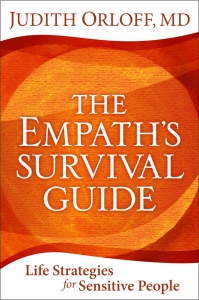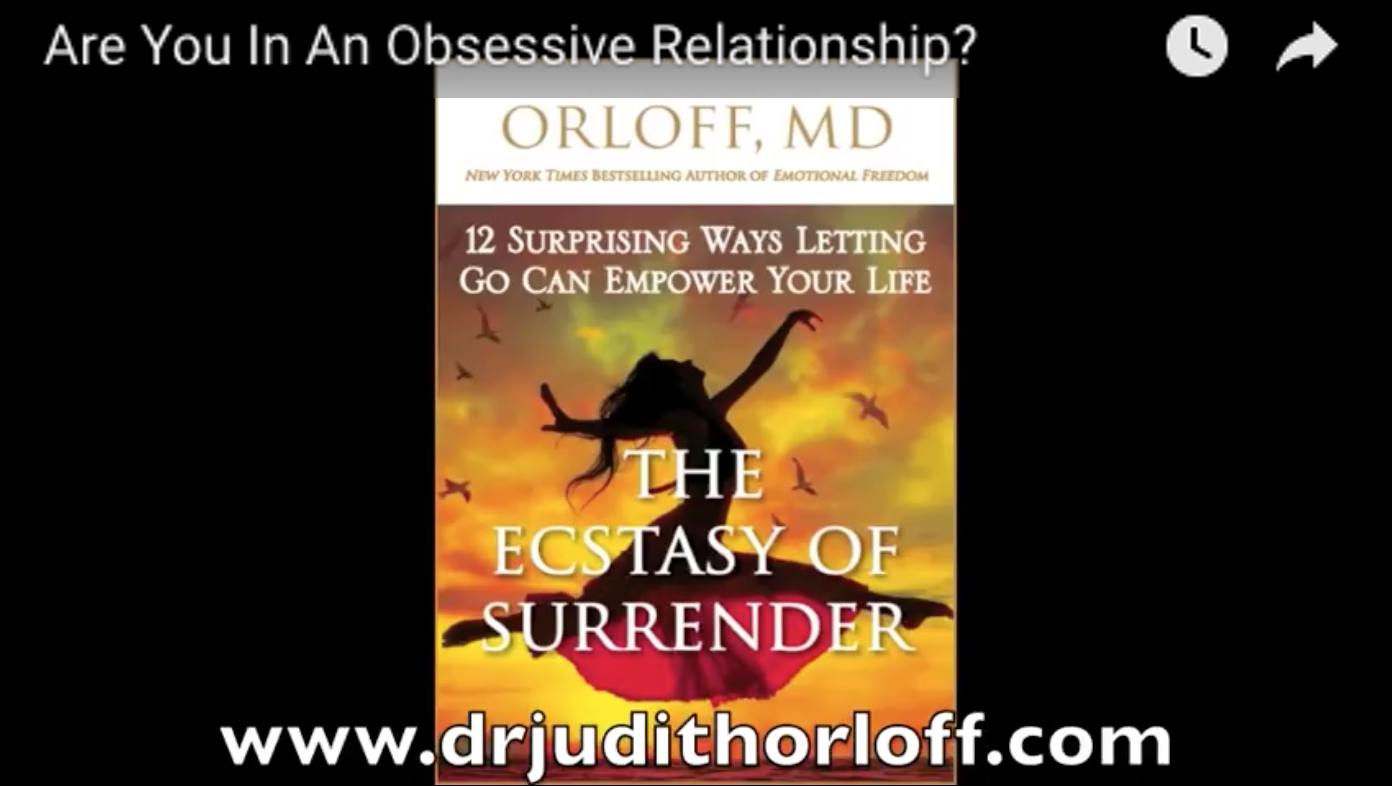Are you an empath? To learn coping skills, get my PDF “Life Strategies for Sensitive People” here.
As a physician, I’ve seen many patients who felt trapped in obsessive relationships. They can’t stop thinking of someone. They can’t stop checking their phones to see if he/she texted. A great part of their consciousness is devoted to ruminating about what this person is doing or not doing and they are afraid of losing the person. These obsessive/possessive relationships can be very painful.
 I discuss this topic at length in my books The Empath’s Survival Guide and The Power of Surrender. In them I emphasize that bonding with a partner is a natural part of getting to know someone and of falling in love. But getting overly attached goes beyond healthy bonding and is disempowering. When you truly love someone you’re not interested in possessing the person or keeping him or her in your clutches because you’re afraid of losing the relationship. Instead, you respect your partner’s autonomy and spirit. You’re not too entangled, by standing together side by side. True intimacy is always a balance between bonding and letting go so the relationship can breathe.
I discuss this topic at length in my books The Empath’s Survival Guide and The Power of Surrender. In them I emphasize that bonding with a partner is a natural part of getting to know someone and of falling in love. But getting overly attached goes beyond healthy bonding and is disempowering. When you truly love someone you’re not interested in possessing the person or keeping him or her in your clutches because you’re afraid of losing the relationship. Instead, you respect your partner’s autonomy and spirit. You’re not too entangled, by standing together side by side. True intimacy is always a balance between bonding and letting go so the relationship can breathe.
Take the following quiz to determine your obsessive patterns.
Quiz: Are You Overly Attached to a Partner?
First to deal with an obsession you have to seize control of your thoughts and mind. Then consciously change your thinking from unwholesome thoughts to constructive positive ones. It is very important to consciously shift out of the obsession using your will to do this.
An aspect of myself that I’ve made progress in healing is my tendency to get overly attached to men. During sex I bond quickly and fuse with a man but I can’t un-fuse with him later. I start yearning for him and thinking about him constantly. Some of this is organic and beautiful, but becoming overly attached crosses a line. I can become obsessed and intensely hungry for contact particularly if I’ve been single for a while.
I am a sexual being so, after I haven’t had sex for a while, I can become needy compared to when I have an ongoing connection with a loving partner. Being in this position makes me (and many women) vulnerable to getting overly attached. For instance, if I don’t hear from this man for a few days–I can get anxious and afraid of losing him or of being abandoned. It’s not good for me, and moreover, most men don’t appreciate this kind of response. So in my tantric sexuality sessions and in therapy, I discovered how to enjoy passion from a more grounded place. Here’s how:
The solution to not becoming overly attached or possessive is to focus on strengthening your self-esteem while addressing and releasing fears, including the fear of abandonment, which can cause the need to cling. Working with a skilled relationship therapist or coach can be productive. Also you can practice the three tantric techniques that I described above. These will help you develop autonomy and grounding. Being willing to surrender the tendency to overly attach in favor of healthily bonding will allow you to have more joyous and pleasurable relationships without the pain of obsession.
WATCH THIS VIDEO TO LEARN MORE ABOUT HEALTHY BONDING
Adapted from “The Empath’s Survival Guide: Life Strategies for Sensitive People” (Sounds True, 2017) by Judith Orloff MD




